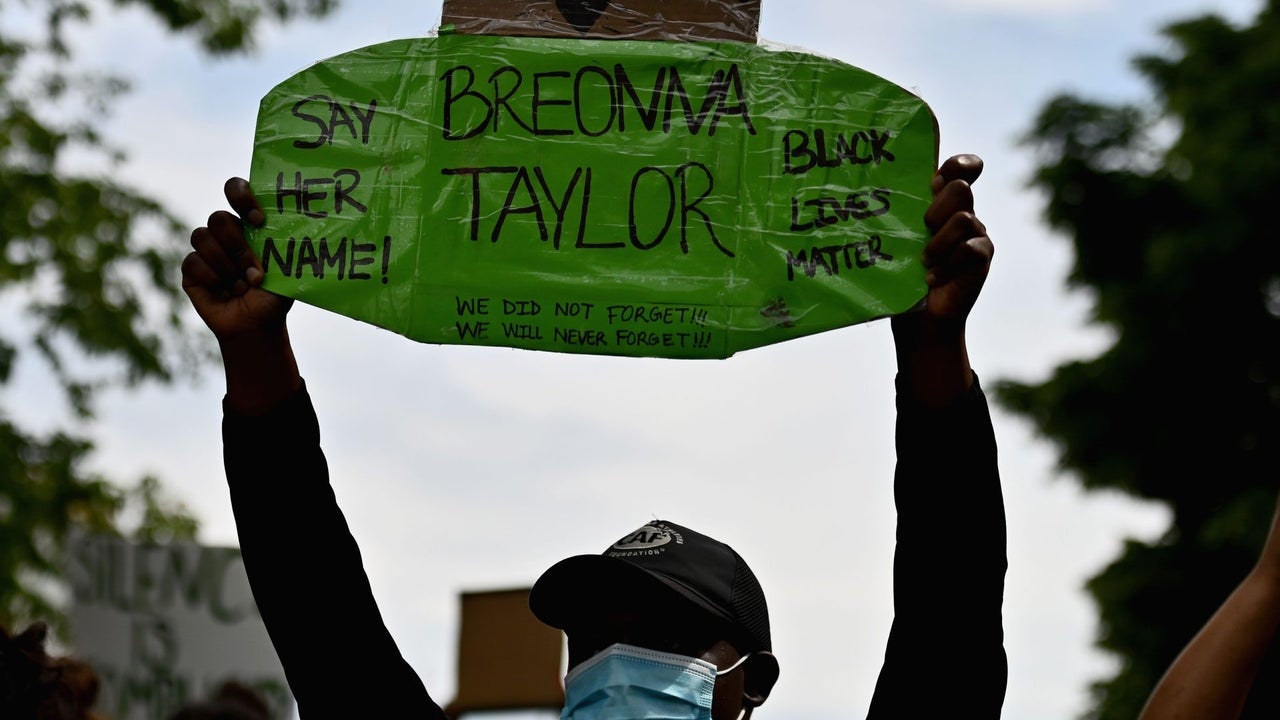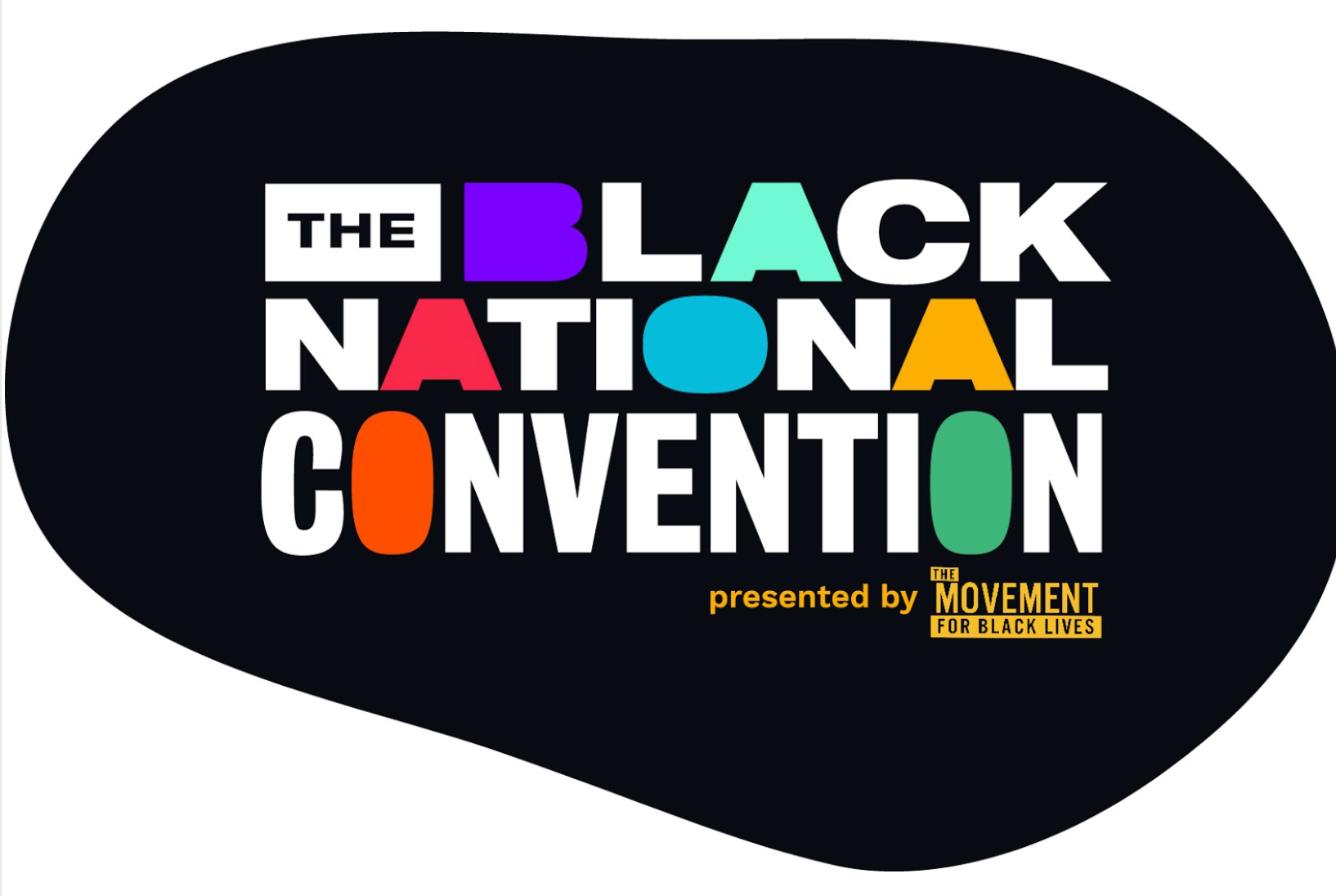WATCH LIVE: The Black National Convention 2020
_
Many people witness the power of movement, but do not witness who actually gives the movement its power. The work of liberation is nuanced and vast. Some pieces of it are more visible than others. But the day-to-day grind, the never-ending work of organizing and training members of our communities, devising strategy, handling crises, and responding to the latest incidents of state violence and harm is often invisible—as are the leaders who do that work.
Take the story of Rosa Parks: history tends to remember her as the woman who acted alone, leading the Montgomery bus boycott. But those of us doing movement work know better. The behind-the-scenes organizing that allowed Rosa Parks to change history was slow-moving, meticulous, and years in the making.
It was where groundwork met groundswell.
That is also the story of the 2020 Black National Convention (BNC). Black women, queer folks, and trans, gender non-conforming, non-binary, and intersex people have led the Movement for Black Lives (M4BL) since the beginning. The organizing for the first Black National Convention in over 40 years is no exception.
The architects behind the M4BL Movement for Black Lives Electoral Justice Project envisioned the BNC as a milestone in its strategy to bridge the gap between power building happening across the country since 2014, with the need for Black people to have a political home outside of the two-party system that has always failed us. We recognize that to get to abolition and establish new institutions that will truly invest in our people, we must go far beyond the ballot box and Election Day to hold our elected leaders accountable.
Black women, queer folks, and trans, gender non-conforming, non-binary, and intersex people have led the Movement for Black Lives (M4BL) since the beginning.
The BNC team was inspired by the slate of progressive Black women who ran for office in 2017 and 2018 in mayoral and Congressional races across the country. These races were led not only by Black women candidates, but by Black women, queer folks, and trans, gender non-conforming, non-binary, and intersex staffers and community organizers working to get these progressive candidates into office and work with them once they got there.
We build off of the legacy of women like Shirley Chisholm, who declared her presidential candidacy at the 1972 National Black Political Convention, and Marsha P. Johnson, who led the Stonewall riots. But we also honor the legacy of all the Black women, queer and trans folks, gender non-conforming, non-binary, and intersex people who helped them create strategies for our liberation, who made sure their speeches were edited, schedules organized and security secured.
We have always been at the forefront of history, laying the groundwork, meeting the moment, galvanizing real change and it’s time that we change the narrative around our contributions.
The retelling of this moment won’t erase or deprioritize the work of Black women.
In organizing the 2020 Black National Convention, we’ve explicitly led with a Black queer feminist lens, meaning we center the leadership of Black people living at the intersections of ableist, gender-based, homophobic, and transphobic violence.
This comes across through who’s doing the work along with the policies we advocate for. Our BNC planning team is comprised of and lead by badass Black women, queer and trans folks, gender non-conforming, non-binary, and intersex people. In early July, our team unveiled The BREATHE Act, a modern-day civil rights bill in defense of Black lives. Championed by Reps. Ayanna Pressley (D-MA) and Rashida Tlaib (D-MI), the bill will divest taxpayer dollars from policing and incarceration to be able to invest in true public safety, equity, and self-determination.
At the BNC we will also relaunch our bold Vision for Black Lives, detailing our core movement demands including an end to the war on Black people. The foundational values of our visionary politics include abolition, ending patriarchal violence, racial capitalism, climate justice, freeing the land, and global Black power.
“If Black women are free, it would mean that everyone else would have to be free since our freedom would necessitate the destruction of all the systems of oppression.” — The Combahee River Collective
Our demands reflect not only what we need for our own success and well-being, but what we all need. Because we know that only when Black women, queer folks, and trans, gender non-conforming, non-binary, and intersex people are free, will we all truly be free.
When our movement first formed in the wake of Mike Brown’s murder in 2014, critics told us we would fail because we were “leaderless” and “lacked clear demands.” What they meant was that there wasn’t a MLK or Malcolm X-esque cisgender man out front leading the charge. They didn’t think anything led by those of us who have also been historically undervalued and underestimated—sometimes, within our own communities—would be powerful enough to shift culture. They said we couldn’t win because demands like divesting from police and reparations were too radical to become mainstream.
But we knew better.

The truth is, M4BL has always been a leaderful movement, not waiting for one charismatic leader to take the reins because it’s our collective brilliance and passion for Black people that’s always turned the tide. For years, we’ve labored in rooms full of leaders from all over the country, putting in the work, knowing our names and contributions may never appear in the media, while and sitting with the reality that others outside of the movement could take credit for and co-opt our strategy.
It takes each and every one of us to propel and sustain the current uprising in defense of Black lives — estimated to be the largest social movement in U.S. history. And we know the movement is larger than the sum of its parts.
And now, in the days before Labor Day, this historic momentum makes it possible for us to imagine a general strike that some of our biggest corporations, associations, and leaders are considering joining. So they can make Black history with us.
Because this movement belongs to all of us. The days of only valuing and fighting for some Black lives are over. We must move forward, more resolute than ever, in the truth that the liberation of all people is inextricably linked to that of Black women, queer folks, and trans, gender non-conforming, non-binary, and intersex people. So press on with us toward the freedom we all deserve.
Chelsea Fuller is the Deputy Communications Manager at Blackbird and Shanelle Matthews is a communications and narrative strategist, and professor at The New School. Both support the Movement for Black Lives communications strategy.
